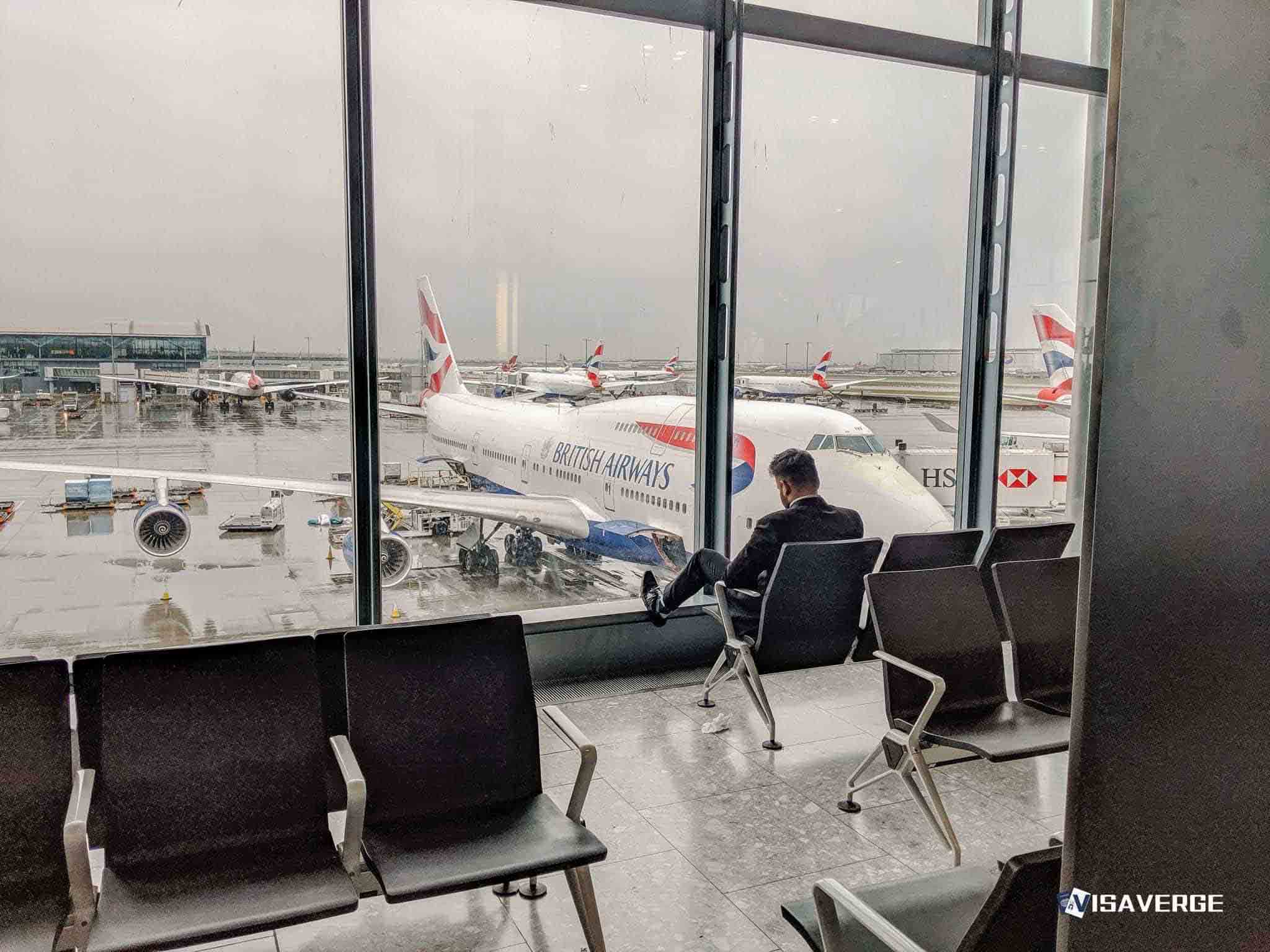(ABERDEEN) Protests over the use of hotels to house asylum seekers spread across the UK through late July and August, with marches and counter-marches in Scottish cities including Aberdeen and Perth over the August bank holiday weekend. At least 33 protests and counter-protests were organized nationwide outside hotels. Many were called under the “Abolish Asylum System” banner, while counter-protesters rallied under groups such as Stand Up To Racism. Police set up large cordons to keep groups apart. No arrests were reported during the latest demonstrations.
The political temperature rose further after the High Court stepped in. On August 20, 2025, the High Court granted Epping Forest District Council a temporary injunction stopping the Home Office from using the Bell Hotel in Epping, Essex, to house asylum seekers. The court gave the Home Office until September 12, 2025, to move people out. That order is now being studied by councils across Britain, including several in Scotland, as a possible route to block hotel placements.

According to analysis by VisaVerge.com, more than 32,000 asylum seekers are now living in hotels across the UK, an 8% rise from the same period last year. This growth comes even though the Labour government has promised to end the use of asylum hotels by 2029. Ministers face a hard choice: comply with local court orders while also keeping people in safe housing, all within a system that still shows high demand and slow case movement.
Legal Turning Point: High Court Injunction
The Epping ruling marks a clear shift in how courts may treat hotel use for asylum accommodation. The High Court accepted arguments linking local disturbances and fear of crime to planning rules. In effect, judges said that public order concerns—when backed by evidence—can sit alongside planning law when deciding whether a hotel can be used for asylum housing.
Legal analysts warn this blend of planning and public order could open the door to more injunctions. If more councils follow Epping Forest’s example, the Home Office could face a patchwork of local limits that reshape its accommodation plan.
How councils must proceed to seek similar orders
- Lodge a claim that hotel use breaches planning controls or causes local harm.
- Present evidence of public order issues (repeated protests, threats to safety, etc.).
- Attend a hearing before a judge who weighs the evidence.
- If granted, receive a court order requiring the Home Office to move people by a set date.
Officials say the Home Office must now find alternative placements for people removed from hotels after court rulings. As of this week, there is no detailed national plan explaining where those people will go once an injunction takes effect. The government says it is working on options, including expanding non-hotel sites, but no new long-term policy has been announced.
For official statements and policy updates, the Home Office provides public information on its site: https://www.gov.uk/government/organisations/home-office. People living in hotels affected by a court order should expect written updates from housing providers or the Home Office and can seek advice from local support groups and legal advisers.
Police forces are braced for more weekends like the last one. Officers have been instructed to keep protest lines apart and reduce risks to hotel residents, staff, and the public. Many local leaders say they support free speech but want calm streets, pointing out that hotel residents include people who have fled war, persecution, or torture and may feel deep stress when crowds gather at the door.
Important: People placed in hotels should expect written communication about any moves and can seek legal advice and local support. Police and councils are prioritising safety while balancing free speech.
Political Fallout and Local Voices
Party leaders and activists have taken sharp positions, heightening tensions nationally and locally.
- Conservative figures across the country have backed councils that want to stop hotel use where they believe the law supports it. Kemi Badenoch, leader of the Conservative Party, has urged council leaders to pursue legal action where justified.
- Former Home Secretary Suella Braverman appeared at a large protest in Waterlooville, thanking demonstrators for “standing up for our country” and saying it is “not racist to say: enough is enough.”
- Nigel Farage, leader of Reform UK, has promised “mass deportations” and a move away from international human rights agreements if his party gains power.
Critics warn that the fight over hotel sites is becoming a rallying point for far-right groups, who have been seen near some protests. This has raised fears among charities and faith groups about safety for hotel residents and staff.
Human rights organizations and anti-racist campaigners argue that protests outside live accommodation put vulnerable people at risk. They say asylum seekers should not be used as political targets and have urged police and councils to keep protests away from hotel entrances. Some Labour politicians back the right to protest but emphasise the need for faster case decisions and proper housing, not standoffs outside hotels.
Voices from Scotland
Within Scotland, debate is intense. Some local Conservative figures say communities feel unheard when hotels are chosen without full consultation. No direct recent quote from the current Scottish Conservative leader calling the protests “understandable” was found in the latest sources, but that absence has not cooled the mood.
- Residents near hotel sites continue to press councils to copy the Epping legal route.
- Counter-protesters plan more rallies to support asylum seekers.
Impact on People Living in Hotels
The High Court’s order has created real-life stress for people living inside hotels. Those affected now face the prospect of another move, sometimes at short notice.
- Families with school-age children fear changing schools.
- Others worry about losing contact with local doctors, lawyers, or support groups.
- Caseworkers say each move can slow progress on an asylum claim because new addresses and service links need to be set up again.
Practical steps for people placed in hotels
– Keep all Home Office letters and share any move notices with your legal adviser.
– Ask housing staff for written details about transport, new address, and support at the next site.
– If you have special medical or family needs, inform the housing provider in writing as early as possible.
– Keep school and GP records together so they can be shared quickly after a move.
Councils’ Trade-offs and Government Options
Councils considering injunctions face significant trade-offs. They must weigh local concerns against the risk that blocking one hotel shifts people to another area with even less capacity. Legal costs can be high, and each case turns on local evidence. But after Epping, many leaders believe the courts are open to arguments that were harder to win last year.
The Labour government now faces pressure on two fronts:
– Keep to the promise to end hotel use by 2029.
– Find sites that can withstand legal tests and community pushback.
Options floated include larger reception centres or repurposed military sites. As of August 25, 2025, however, no fresh policy package has been announced. The Home Secretary, Yvette Cooper, has held talks with councils and officials on next steps while also dealing with court deadlines and police requests for clearer guidance.
Local Reality: Volunteers, Charities and Daily Life
In hotel towns such as Aberdeen and Perth, local charities describe a daily split-screen.
- On the pavement: chants, flags, and lines of police.
- Inside: families waiting for letters, parents trying to keep children calm, single adults calling solicitors or support workers to ask if a move is coming.
Volunteers say the best help from the public is practical and simple:
– Donate phone credit, toiletries, or bus passes.
– Offer English lessons.
– Avoid shouting or gathering near doors where people sleep.
Supporters of the protests argue:
– Hotels weigh on local services.
– They put pressure on police and can raise fear of crime.
– Decisions are made in London and dropped on towns with too little notice.
Opponents respond:
– People applying for asylum are not responsible for the policy gaps that led to hotel use.
– They should not be made to feel unsafe where they live.
What Happens Next
The near-term outlook depends on three moving parts:
1. Courts: More councils are expected to test the Epping logic in the High Court.
2. Capacity: The Home Office must line up more non-hotel sites that can be ready quickly.
3. Politics: As the next general election nears, parties will likely adopt harder lines on asylum and migration.
As more injunctions land, hotel residents may face shorter notice periods and more transfers. Advocates urge the Home Office to provide clear, written timelines and to protect schooling and medical care during moves. They also ask housing providers to offer at least basic travel support and a named contact at the next site.
The “Abolish Asylum System” slogan is likely to remain visible on placards, but the law is being tested in courtrooms as well as on streets. The Epping order has added a new tool for councils and a new hurdle for the Home Office. For people in the hotels, the biggest need remains steady housing and faster decisions—so they can move on with their lives, one way or another.
This Article in a Nutshell
The High Court blocked use of the Bell Hotel on August 20, 2025, ordering relocation by September 12; the ruling could enable more council injunctions. Over 32,000 asylum seekers live in hotels (up 8%). At least 33 protests occurred; authorities must balance public order, legal challenges, and re-housing plans while protecting vulnerable residents.








